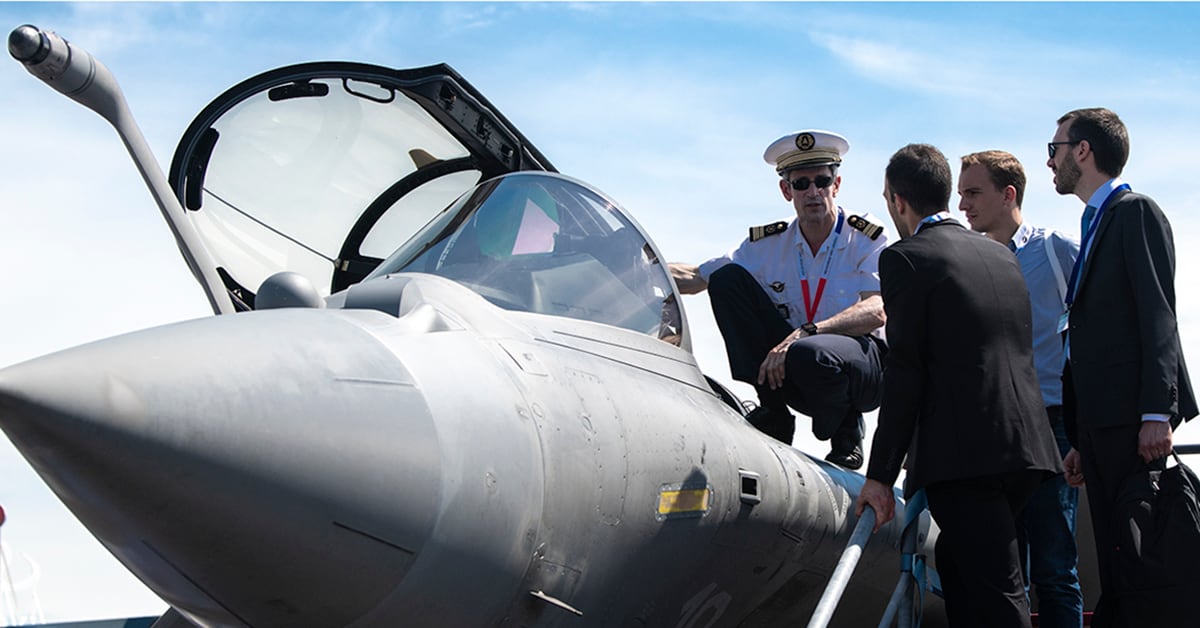PARIS — France’s Army needs to toughen up, according to its chief of staff, and he has the strategic plan to do it by 2030.
Gen. Thierry Burkhard, a paratrooper in the Foreign Legion and former commander of its 13th Demi-Brigade and later of the Combined Operations Center, unveiled the 20-page document on Wednesday. The document was prepared by a tight-knit group of senior officers, who worked on it from August to October last year. It was then discussed by senior Army cadres, and by January it was ready. However, the coronavirus pandemic delayed its publication.
Burkhard said implementing the plan is critical because a “recurrence of a major conflict is now a credible hypothesis.”
He added that the cycle of asymmetrical warfare is coming to a close and that a return to symmetrical, state-on-state conflict is likely. But the document also warns that “there are new means of using force, unforeseeable and more insidious, based on intimidation and manipulation, in a new type of warfare, undetectable and disclaimed, to obtain undeniable strategic gains by imposing a fait accompli.”
One of France’s concerns is that China’s expansion in the Pacific will endanger the European country’s territories there, such as New Caledonia and French Polynesia. French armed forces in the area must be able to riposte vigorously if necessary, Burkhard said.
RELATED

To “acquire operational superiority,” the French Army must improve its capabilities in the electromagnetic environment, space, cyberspace and information technology, the report said. It also stressed the importance of “strategic industrial partnerships within Europe,” specifically mentioning the CaMo (Capacité Motorisé, or motorized capacity) program, which will see Belgium receive 382 multirole Griffon armored vehicles as well as 60 reconnaissance and combat Jaguar armored vehicles identical and thus compatible with the French ones.
The report also highlighted the importance of the Franco-German Main Ground Combat System — a joint effort to develop a main battle tank that will replace Germany’s Leopard 2 and France’s Leclerc by 2035.
There are 12 major projects meant to make the 114,000 French soldiers (of whom 77,000 are ground troops) better prepared for the future of war as described in the report. These include setting up a new technical school to give noncommissioned officers the stronger technical education they’ll need to use the materiel being delivered under the $12 billion Scorpion modernization program.
Burkhard also wants to reorganize the management of military vehicles, handing responsibility back to the regiments so they can independently prepare for operations. He also wants training to be more realistic and to involve new technology.
Other projects involve improving joint and allied interoperability as well as making better use of the reserve force, which currently stands at 24,000 men and women. According to Burkhard, these reservists should be given more autonomy and be better spread out over the territory, and their contracts should be better adapted to their very different life styles based on full-time profession, academic status and geographic location. He also said the Army should have a role in educating French youth on the importance of defense and in developing the universal national service, which will become obligatory from 2024 for French individuals born in 2008.
Burkhard also wants to plan a division-level exercise to prepare for air, ground and sea maneuvers.
And lastly, he wants to get the job done without having to cut through a mound of red tape. Things in the Army should be simpler, the report read, “so that at local level things are clear and pragmatic.”
Christina Mackenzie was the France correspondent for Defense News.








